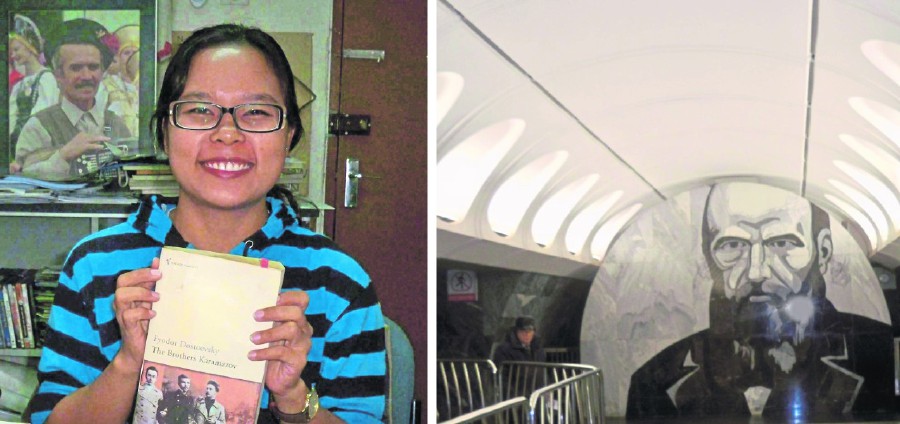THURSDAY marked the 200th anniversary of the birth of Fyodor Dostoevsky, the great Russian writer, thinker, philosopher, publicist and one of the most read Russian authors abroad.
For one and a half centuries, his works have stirred the minds and hearts of people all over the world, making them think about the enigmatic Russian soul and moral issues faced by society and how resolving them will determine the fate of mankind.
Activities dedicated to the anniversary took place across Russia, with St Petersburg playing a special role. Inextricably linked to Dostoevsky's life and work, the city is one of the main characters in his works.
Anniversary events include theater performances, film screenings, exhibitions, lectures, literary nights and sightseeing walks in the St Petersburg of Dostoevsky.
Dostoevsky was born in Moscow to the family of a doctor. His family was very religious and Dostoevsky was deeply religious all his life.
He was trained to be a military engineer, but he disliked his college and loved literature. When he finished college, he turned away from the career he was trained for and devoted himself to writing.
In his first novels — Bednie Lyudi (Poor Folk, 1846), Belie Nochi (White Nights, 1848) and Netochka Nezvanova (Nameless Nobody, unfinished and published in 1849) — Dostoevsky described the suffering of "little people" as a social tragedy.
In the novel Dvoinik (The Double, 1846), he gave a psychological analysis of burst consciousness.
As a member of the Petrashevsky group (an opposition group) in 1849, Dostoevsky was arrested and sentenced to death, later replaced by forced labour in Siberia (1850-1854) and military service with a private rank.
In 1859, he returned to St Petersburg and wrote the novel Zapiski iz Mertvogo Doma (Notes from the House of the Dead, 1861-1862) about the tragic fate and dignity of human beings in forced labour camps.
In the novels Prestuplenie i Nakazanie (Crime and Punishment, 1866), Idiot (The Idiot, 1868), Besi (Demons, 1871-1872), Podrostok (The Adolescent, 1875) and Brat'ya Karamazovi (The Brothers Karamazov, 1879-1880), he displayed a philosophical understanding of the social and spiritual crisis in Russia, the contradictions of individual personalities, the pursuit of harmony between human beings and society, deep psychology and tragism.
The works of the great Russian writer are not losing popularity. There are millions of fans of Crime and Punishment, The Brothers Karamazov, The Idiot and other Dostoevsky novels all over the world, including Malaysia.
Two of his major books have been translated into Malay: Balasan Dosa (Crime and Punishment), translated by Mokhtar Ahmad (Dewan Bahasa dan Pustaka, 1994) and Si Tolol (The Idiot), retold by Nordin Hassan and Siti Hawa Sudin (Fajar Bakti, 1995).
I used to contribute to this field, including a part of The Idiot into my anthology of Russian literature Golden Rose (ITBM, 2009).
I remember how my students subscribed to the Russian culture course at Universiti Malaya with enthusiasm. They prepared presentations on Dostoevsky and his works and some even chose to read Crime and Punishment for an assignment. (I asked them to read at least one literary work by Russian writers during the semester.)
I'm sure they got a lot from Dostoevsky's books for their future life. The great Argentine writer Jorge Luis Borges once remarked: "Reading Dostoevsky for the first time is a milestone in life as important as the first love and the first meeting with the sea."
The writer, writing from Russia, was a former lecturer of Universiti Malaya





